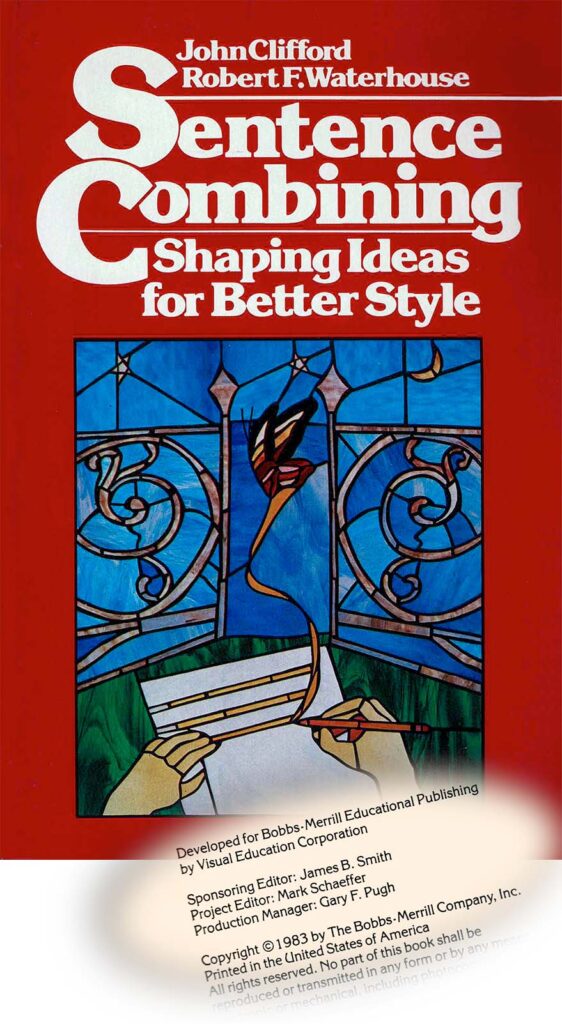Sentencing Guidelines
I know that my writing style is stuffy and formal. Although I’m liberal in my beliefs, I’m ultra-conservative in the way I express them. For example, I’m fastidious about sandwiching every non-restrictive clause between commas, and beginning every dependent clause with “that.” I still make a distinction between “if” and “whether.” I still use the subjunctive (“if Puerto Rico were a state” rather than “if Puerto Rico was a state”) when talking about hypothetical situations.
It’s not that I want to appear stodgy. When I was young, having such a formal writing style helped me be taken more seriously, but now that I’m a senior citizen, it’s more likely to make me seem out of touch. (I’m reminded of a time when I was in my 40s and a new acquaintance asked me why I have a beard. “I grew it to look older,” I said. She looked me over and said, “I don’t think you need to do that anymore.”)
I think that the real reason I write this way is because of how my brain processes language. Most people, if they were composing the first sentence of this post, would write “I know my writing style is stuffy and formal,” leaving out the word “that.” Doing so makes it feel friendlier and more casual. But the omitted word “that” is actually a meaningful conjunction whose purpose is to introduce a dependent clause. In order for the sentence to make sense, my mind has to consciously insert the missing word.
This re-parsing happens almost instantly — so quickly that it might legitimately be called insignificant. Having no way to get inside other people’s heads, I can only guess that it really is insignificant for most people. But for me, it’s annoying, like a speck of dirt on my eyeglasses. What reason is there to put unnecessary obstacles in the way of clarity?
In my post “Hat Check,” I opined that the function of a hat (or a finger) is more important than its style. I guess I’m saying the same thing here about language. Writing style is important, but it’s less so than the primary function of writing, which is to deliver meaning. Anything I can do to make the meaning of a sentence more immediately accessible, without requiring the reader to expend effort on reinterpretation, contributes to the sentence’s utility.
I once edited (and largely ghost-wrote) a college textbook called “Sentence Combining: Shaping Ideas For Better Style.” Its thesis, put forth by a professor of English named John Clifford, was that anyone can become a better writer by starting with a list of independent statements and then arranging and combining them in different ways. For example, the statements “London’s first department stores seemed pleasant” and “They were disagreeable places to work” can be transformed into:
- London’s first department stores seemed pleasant, but they were disagreeable places to work.
- Although they were disagreeable places to work, London’s first department stores seemed pleasant.
- London’s first department stores seemed pleasant even though they were disagreeable places to work.
- It’s surprising that London’s first department stores were disagreeable places to work, since they seemed pleasant.
At the time, this concept seemed so obvious to me that I couldn’t imagine why anyone would need to publish a book about it. Writing, for me, has always been a laborious process of trying and rejecting different formulations until I find the one that most clearly represents the meaning and tone that I want to communicate. (In 1983, when I edited that book, I was still conducting all of those trials mentally and then writing down the result on paper. I didn’t get my first computer — which allowed me to do the work on a screen instead of totally in my head — until the following year.) To this day, writing an email or even a simple text takes me forever.
I didn’t think there was anything unusual about that until I met my wife Debra, who can write quickly and almost effortlessly. Considering that she made it through law school and then had several books published, there’s clearly nothing wrong with her writing; she communicates as well as anyone, and her style is considerably less labored than mine. She certainly doesn’t waste time recombining sentences à la John Clifford.
I suppose that this is just another example of how my brain is wired differently. (I struggled with whether to remove “that” in the preceding sentence, but left it in for consistency.) I’d love to write in a more casual style for this blog, but achieving precision and casualness is more work than I can manage for weekly posts. For those who haven’t met me, be assured that I’m not as stuffy in person as I might come across on the page.

Can something be precise AND casual at the same time, according to the definitions you’re using? I’m still struggling to only put one space after the period in a sentence. I think having two spaces provides the reader with more of a pause.